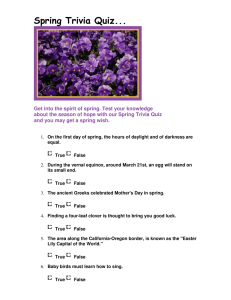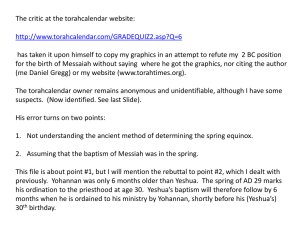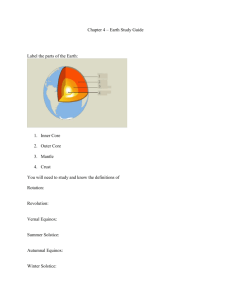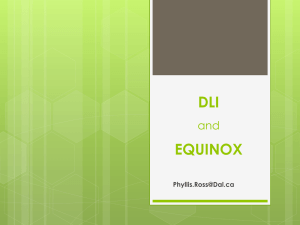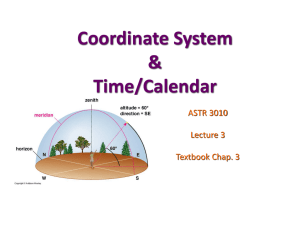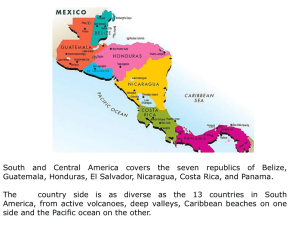Shunbun no Hi “Vernal Equinox Day”
advertisement
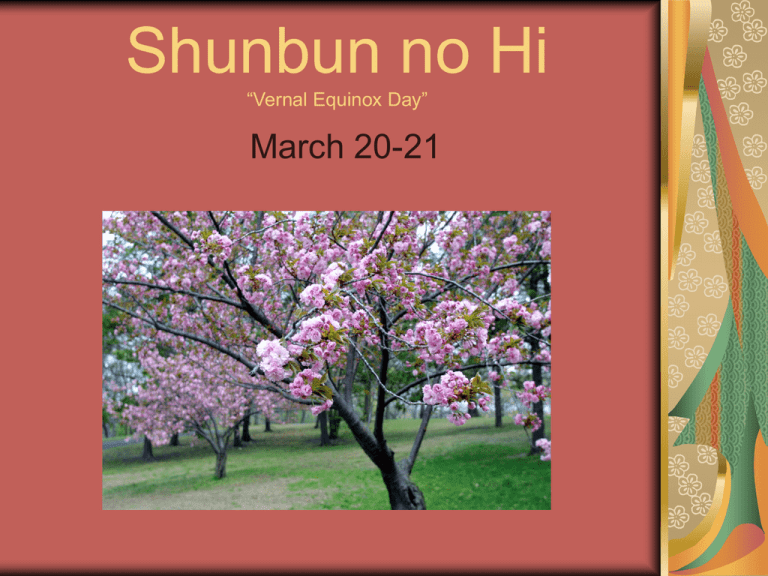
Shunbun no Hi “Vernal Equinox Day” March 20-21 Shunbun no Hi wa itsu desu ka? “When is Vernal Equinox Day?” This holiday is celebrated on March 20 or 21, a day where the sun crosses the equator making night and day equal in length. Shunbun no Hi wa nandesu ka? “What is Vernal Equinox Day?” This holiday celebrates nature, and is used to show appreciation for all living things. How long is this celebration? This holiday is generally celebrated for a seven day period. It starts three days prior to Vernal Equinox Day, and ends three days after. That period of time is referred to as “Higan.” What is done during Higan? During Higan, people pay respect to their elders. Family graves are often visited during this time, where family members offer flowers, food, drink, and incense to console their ancestors spirits. Special Foods Some people offer food to their friends, family, and neighbors; although giving food is not a traditional part of Shunbun no Hi. The most common food given is botomochi, which is soft rice covered with sweetened bean paste. History of Shunbun no Hi Although the precise origin of this holiday is unknown, Shunbun no Hi became a popular celebration in the 18th century. Around that time, the emperor issued an ordinance notifying the importance of this holiday. History (continued) During the Meiji Era (1868-1912) the government made this celebration a national holiday. Folklore about Shunbun no Hi There are stories related to Buddhism about this holiday. It is said that on the equinox, Buddha will appear on Earth to save stray souls and help them during their crossing to the after life. It is also said that after the equinox occurs, the chill of winter disappears and cherry blossoms will begin to grow. THE END!

